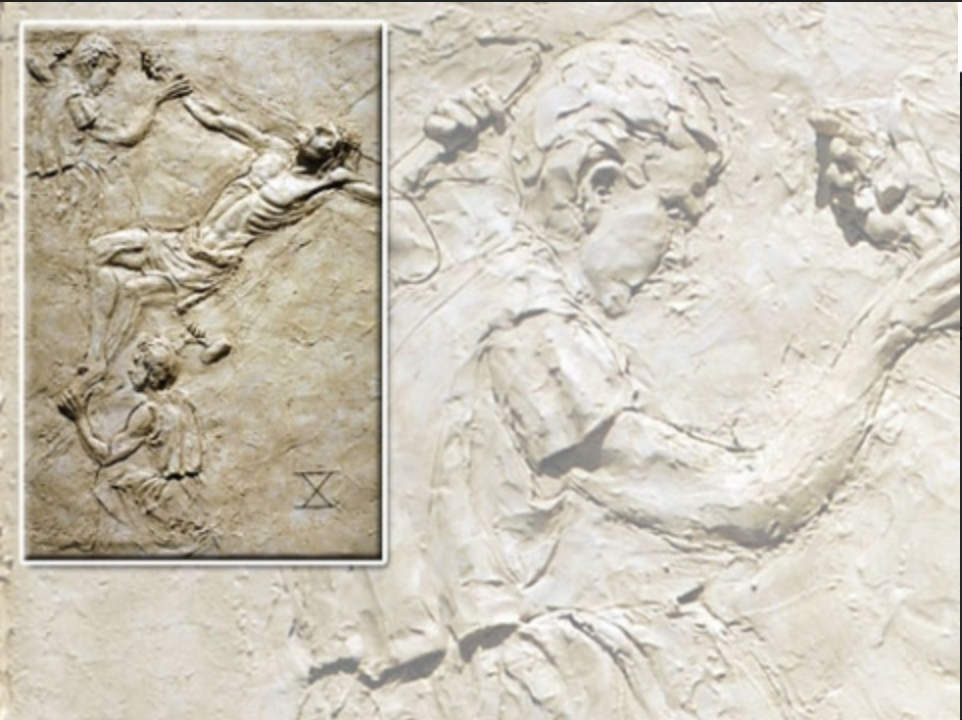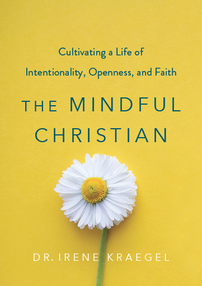When they came to the place called the Skull, they crucified him and the criminals there, one on his right, the other on his left. Then Jesus said, “Father, forgive them, they know not what they do.” (This post is part of a Lenten series on praying the Stations of the Cross - a devotional practice that is said to have started with Mary after the death and resurrection of Jesus. To start at the beginning, see the overview provided on March 5, 2023, and then go from there!) Reflection This is the most-feared moment, and there is no escaping the excruciating pain, nor does Jesus try to escape. He has entered this place that sounds like hell on earth – “the Skull” – and centered himself between two criminals to share in their horror of death by crucifixion. Somehow, he still exudes love here, not anger. He is bringing forgiveness to the whole world and literally to these guilty men on either side of him, bringing ultimate forgiveness into this physical place of ultimate punishment for the crimes of humanity. In the artist's portrayal of Station X, the men conscripted into carrying out this violent act of crucifixion appear tragic to me. What did they feel as they hammered nails through flesh and bone? Did they suspect this was God-as-man? Did their hearts hear any whisper of God? They come across as small and vulnerable, and I can see and feel why Jesus spoke forgiveness over them, even in their moment of violence. They were following orders, and they didn’t know. It makes me wonder when have I caused God pain, thinking I was doing right, and God spoke forgiveness over me, even in the moment of his pain at my hands? This moment of sacrifice changed everything. The reach of Jesus’ arms stretched out on his cross is so wide, and looking at the artwork of this Station, I can feel how wide and all-encompassing is this act of love as he reaches directly down through the ages to us. The sins of those around him, including those crucifying him, have no eternal relevance. God’s wide plan can never be stopped by our deeply misguided confusion. God saved us through vulnerability on full display. There is nothing Instagramable about this moment, this authenticity, this pain, this love. God went all-in. Jesus was still talking with his Father at this moment of steel ripping through flesh, still rooted in that relationship, just as we saw way back in the Garden of Gethsemene (Station I). He was keeping the conversation going. When I am harmed by those around me (as was Jesus), this is an opportunity to love and forgive (as Jesus did). The only way to do that is to keep the conversation going with the Father. A note about mindfulness Forgiving those who harm us requires us to see beyond our (real) experience of pain to also see the humanity of those who have harmed us. Recognizing our common vulnerability, confusion, and need for compassion, we have the opportunity to honor our own emotions while also releasing our grip on anger toward others. Mindfulness practices help us see this common humanity, with particular power in Lovingkindness practices to expand our vision beyond ourselves. Forgiveness doesn’t mean we always stay in relationship with those who have harmed us (particularly in cases of abuse and violence), but it does mean we take God up on the offer to be set free from our own bitterness and thirst for revenge. (For a list of mindfulness practices that help recognize our common humanity, check out the Guides for Practice available here.)
0 Comments
Leave a Reply. |
Author
I am Irene Kraegel. I am licensed as a clinical psychologist and teach mindfulness on a faith-based university campus. I practice mindfulness because it opens me up to God (a.k.a. brings joy). I am writing here in hopes of sharing some of my experiences and thoughts related to the practice of mindfulness in the life of a Christian. Thanks for reading! Books
Blog archives
December 2023
|



